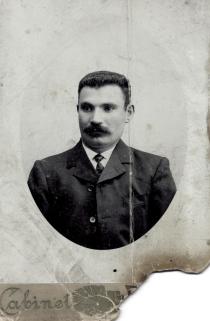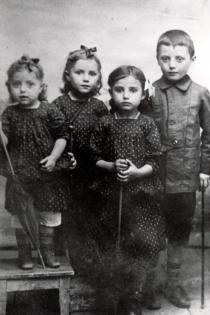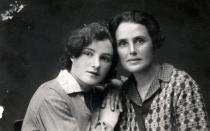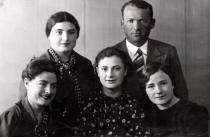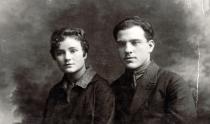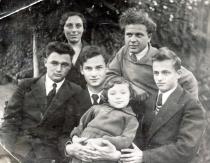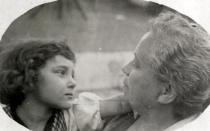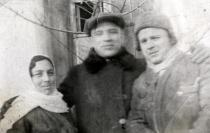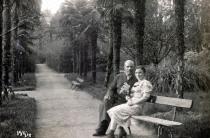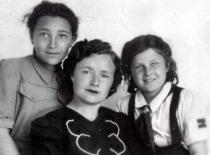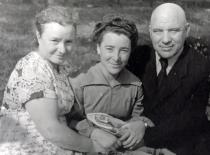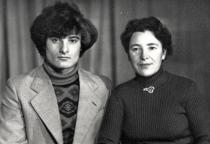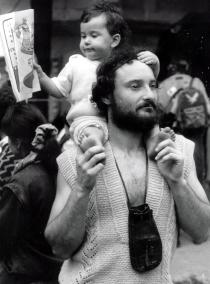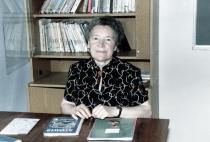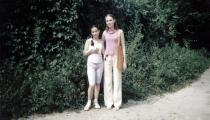I, Communella Bunikovskaya, and grandmother Sarrah Bunikovskaya photographed by my father's brother David. Mariupol, 1937. I was visiting in Mariupol.
On 9 April 1931 I was born. My mother named me Communella - she liked extraordinary and beautiful names.
In summer 1935 we moved to Makeevka, a small town of miners near Stalino. My father got a job and received an apartment there. My father worked at the Attorney office, but in 1936 during the period of repression he became head of legal department at a plant. My mother worked for the 'Worker of Makeevka' newspaper.
We lived in a 3-room apartment on the 2nd floor of a 4-storied building in the center of Makeevka. This house was cold the 'House of doctors and engineers' since there were families of intelligentsia living in it. We had a nanny that I have dim memories of. I remember bookshelves by two walls in our living room: classic books and dictionaries. Besides Russian classic there were books by Sholem Alechem and other Jewish authors in Russian. My mother and father communicated in Yiddish, but my father forbade my mother to teach my sister and me Yiddish. He believed that this language would die out and Jews would get assimilated. Our mother sometimes tried to tell us sayings in Yiddish that she learned from her mother and grandmother, but my sister and I didn't understand them. We didn't observe any Jewish traditions in our family. This was the period of struggle against religion and I don't remember any other Jewish families observing traditions at that time.
I often visited my grandmother Sarrah and grandfather in Mariupolbefore the WW II. I remember that they lived in a 2-storied house. I guess they owned this house since I never saw any neighbors or a different owner of the house. My grandmother was a short fat woman with gray curly hair. She was a very quiet and reserved woman. I loved her dearly.
My father told me that my grandparents observed all Jewish traditions before the revolution: they only had kosher food, celebrated all Jewish holidays. My father and his brothers finished cheder. They went to the synagogue with their parents. After the revolution the Soviet authorities struggled against religion and in 1930s when I came to visit them there were no religious signs in the family, though I am sure that they remained religious people in their heart. I guess they prayed in secret. The last time I came to Mariupol in 1938 I didn't know that I would never see my grandmother Sarah and my father's brothers David and Isaac and their sister Rosa. In the end of 1941 they evacuated from Mariupol, but got in encirclement and were exterminated by Germans. In 1950s I found a sheet of paper with my mother's notes: 'In summer 1941 my husband's family: his mother, sister Rosa, brothers David and Isaac and Isaac's daughter was martyrized by fascists during a mass shooting of Jews in Mariupol.

